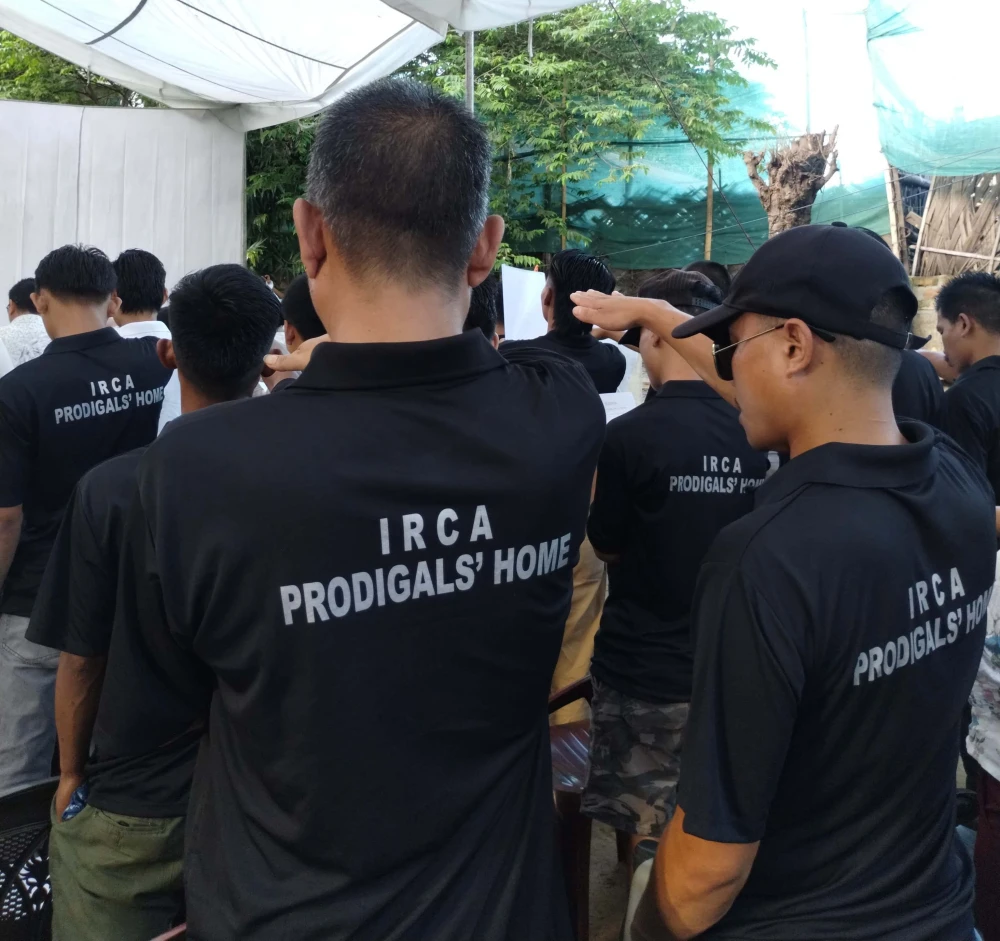Administrators and officials, along with attendees during the observation of the International Day Against Drug Abuse & Illicit Trafficking, held at IRCA Prodigals’ Home, Dimapur on June 26.

Morung Express News
Dimapur | June 26
The International Day Against Drug Abuse & Illicit Trafficking was observed at under the theme “Breaking the Chains: Prevention, Treatment, and Recovery for All” IRCA Prodigals’ Home, Dimapur on June 26. The event was organised in collaboration with the Department of Social Welfare, Narcotics Control Bureau, Prodigals’ Home and Narco Co-ordination Centre Dimapur (NCORD).
T Zubemo Kikon, Drugs Control Officer, NCORD Dimapur, in his address, highlighted the government’s flagship campaign—Nasha Mukt Bharat Abhiyan (NMBA), which was launched under the Ministry of Social Justice and Empowerment on June 26, 2021. He informed that 272 districts across India were identified as most vulnerable to drug use, based on a comprehensive national survey conducted by the ministry.
According to the survey, there are around 60 million drug users in India, with a significant number between the ages of 10 and 17. “This shows the age group of school-going children,” Kikon said, stressing the vital role that schools must play in prevention.

Kikon noted that under NMBA, the ministry has proposed District De-addiction Centres across selected regions. In Nagaland, nine districts were selected. However, Dimapur was not included and has been categorised as a “gap district,” indicating the lack of adequate infrastructure and support systems for rehabilitation.
Kikon urged all stakeholders to take collective responsibility in addressing the issue, adding, “Say no to drugs before you say no to your future.”
T Meren Jamir, Counsellor at IRCA Prodigals’ Home, shared his personal journey through addiction, reflecting on a time when there was no awareness of treatment or prevention. “If all schools could introduce a curriculum on addiction and prevention, I believe it would be a great step towards breaking the chains,” he said. Jamir expressed disappointment that despite the presence of brilliant minds within the government, ministries, and churches, the response often stops at ‘slogans.’
“I’d rather you come up with schemes and projects for the entire community,” he said, emphasising that recovery is a shared responsibility. In this context, he also appealed to the Church to move beyond its comfort zone and take a more active role in bridging the gap between addicts and recovery.
“We wasted so many of our prime years dealing with addiction. We didn’t even know about withdrawal. Without awareness, how can there be prevention? It has to come from all corners,” he added.
Delivering the message on the day’s theme, Shikato Jimo, Senior Inspector, Department of Social Welfare, stressed the importance of honesty as a starting point for personal transformation. He commended the recovering addicts in attendance, saying, “To admit you were once an addict, let me tell you, you are the strongest people.”
Reminiscing about his own youth, he shared, “Back then, only those who had money did drugs. I didn’t, because I couldn’t afford to. Now they’re gone,” as he drew attention to how destructive the path of addiction can be. Jimo encouraged the gathering to practise forgiveness, not just toward others, but towards oneself.
Short speeches were also delivered by Lhunkholal, Superintendent, NCB Dimapur Field Unit, and representative of the Dimapur District Users Network (DDUN).The welcome address was given by K Ela, Director of IRCA Prodigals’ Home. A pledge to “say yes to life, no to drugs “was undertaken by all attendees. The programme also featured a special song by Tongmeth and friends from Tikvah Centre, Dimapur, along with a presentation by residents of IRCA Prodigals’ Home.






